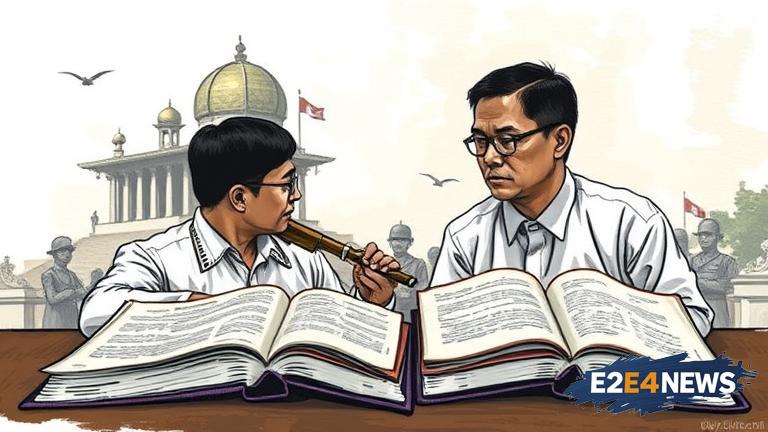Indonesia has introduced new history books that have sparked controversy among scholars, who argue that the revised texts distort the country’s past and promote a nationalist agenda. The new books, which were introduced in 2020, have been criticized for their inaccurate and biased portrayal of Indonesian history. Scholars claim that the books gloss over the country’s complex and often tumultuous past, instead presenting a sanitized and nationalist version of events. The revised texts have been accused of downplaying the role of colonialism and the struggles of Indonesia’s indigenous peoples, while emphasizing the importance of national unity and the country’s founding fathers. The books have also been criticized for their lack of academic rigor and their failure to provide a nuanced and balanced view of Indonesian history. Many scholars have expressed concern that the revised texts will have a negative impact on the country’s education system and will perpetuate a narrow and nationalist view of history. The controversy surrounding the new history books has sparked a wider debate about the role of history in Indonesian society and the importance of promoting a more nuanced and balanced understanding of the country’s past. Some scholars have argued that the revised texts are part of a broader effort to promote a nationalist agenda and to suppress dissenting voices. Others have claimed that the books are an attempt to rewrite history and to promote a more positive view of the country’s founding fathers. The controversy has also highlighted the importance of academic freedom and the need for scholars to be able to conduct research and teach without fear of censorship or reprisal. Despite the controversy, the Indonesian government has defended the new history books, claiming that they are an improvement on the old texts and that they provide a more accurate and balanced view of the country’s history. However, many scholars remain skeptical and have called for the books to be revised or withdrawn. The controversy surrounding the new history books has also sparked a wider debate about the role of education in Indonesian society and the importance of promoting critical thinking and academic freedom. The Indonesian government has been accused of trying to control the narrative and suppress dissenting voices, and the controversy has highlighted the need for greater transparency and accountability in the country’s education system. Overall, the controversy surrounding Indonesia’s new history books has sparked a wider debate about the role of history and education in Indonesian society, and has highlighted the importance of promoting a more nuanced and balanced understanding of the country’s past. The controversy has also raised concerns about the impact of nationalist agendas on education and the importance of protecting academic freedom. The debate is likely to continue, with many scholars and educators calling for a more nuanced and balanced approach to teaching history in Indonesia. The controversy has also sparked a wider discussion about the role of history in shaping national identity and the importance of promoting a more inclusive and diverse view of the past. The Indonesian government’s efforts to promote a nationalist agenda through the new history books have been criticized for being overly simplistic and for failing to acknowledge the complexity and diversity of the country’s history. The controversy has highlighted the need for a more nuanced and balanced approach to teaching history, one that takes into account the diversity of perspectives and experiences that have shaped the country’s past.
